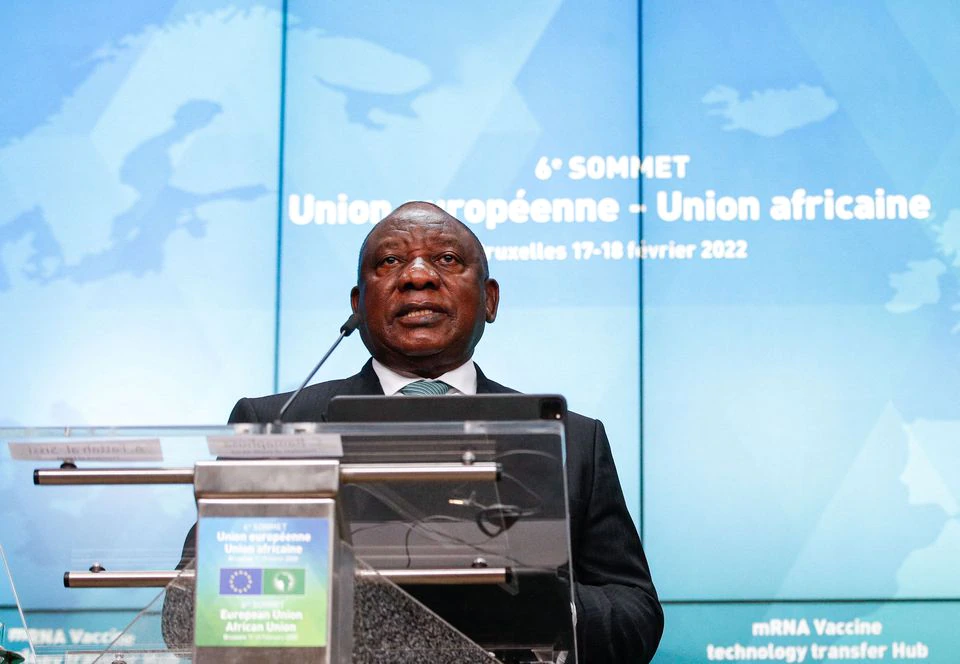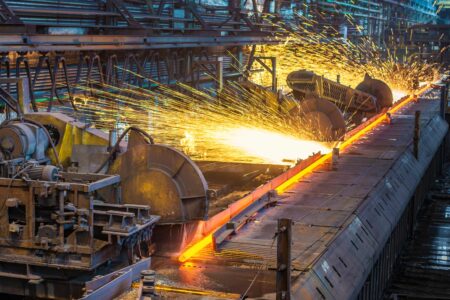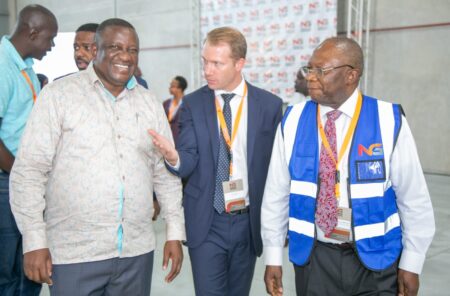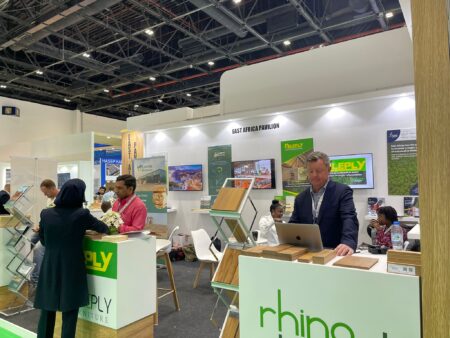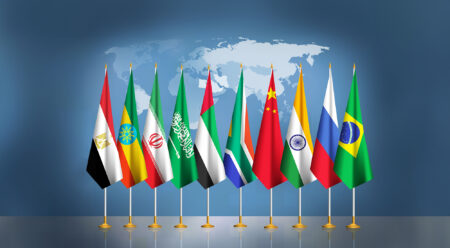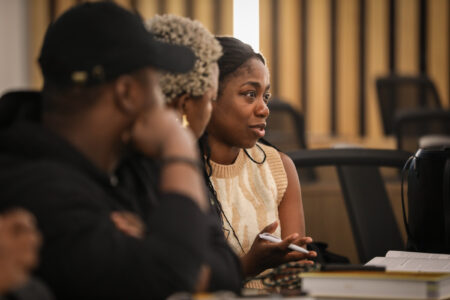- International agencies and charitable foundations providing COVID-19 vaccines for Africa should order African-made vaccines, South African President Cyril Ramaphosa.
- South African-owned subsidiary of pharmaceutical giant Aspen is at risk of being shut down due to low demand.
- Building the continent’s regulatory systems and clinical trial capabilities, and aligning them with the needs in the market, will help sustain Africa’s vaccine manufacturing sector.
African countries were among the last in the world to begin rolling out Covid vaccines. This was largely due to limited access to vaccines and funding constraints.
Before the Covid pandemic, efforts to address the challenge of limited vaccine production on the continent yielded little success. The pandemic exposed the limited capacity to manufacture vaccines.
As a result key stakeholders on the continent were joined by international partners, to advocate for the urgent and rapid establishment of Covid vaccine manufacturing capacity on the continent.
A year ago, South Africa celebrated the opening of the continent’s first Covid-19 vaccine production line. Now it’s at risk of being shut down due to low demand. The continent’s largest Covid-19 vaccine manufacturing plant opened in South Africa last year, and mRNA hubs for tech transfer have been opened in South Africa, Egypt, Senegal, Tunisia, Kenya, and Nigeria.
A South African-owned subsidiary of pharmaceutical giant Aspen struck a deal with an American company, Johnson & Johnson, in November last year to package, price, sell and distribute its vaccine in Africa. This vaccine was rebranded as Aspenovax.
Read: Manufacturing of Candidate Covid-19 Vaccine On African Soil
In an article published by Voice of America on May 04, 2022, South Africa’s National Health Department Spokesperson Foster Mohale said the lack of orders is due to low vaccination rates not only at home but globally.
“Vaccine hesitancy is one of the factors which contribute to these low vaccination rates or demand for more vaccines which also affect the production. Because obviously, we understand that they are in a business, they can’t keep on producing vaccines when they know that the demand for vaccines is very low. So, we understand the situation where they are, and we sympathize with them,” he said.
Mohale said, for now, South Africa has enough vaccines. He added that in March, 100,000 vaccines expired. And more are due to expire in June and July. However, he said that Aspen’s vaccine plant is important because no one knows what the future holds.
Africanews in an article published on May 03, 2022, quoted Professor Tulio de Oliveira, the director of the Centre for Epidemic Response and Innovation in South Africa, who told the BBC that the closure could affect the production of other vaccines that “do not affect the developed world” as well as the preparation for the next pandemic.
Wolfgang Preiser, a virologist at Stellenbosch University, says the risk of production closure is alarming news. He is worried that in future pandemics, pharmaceutical companies might be more reluctant to ramp up investments under pressure.
Stavros Nicolaou, a Senior Executive at Aspen Pharmacare Group said in the absence of orders or commitments, Aspen is considering the repurposing of two COVID-19 production lines for the manufacture of other products.
“The continent would lose its only existing COVID vaccine manufacturing capacity, It would be a massive setback for Africa’s plans to localize and reduce its dependency on imported vaccines,” he said.
John Nkengasong, director of the Africa Centres for Disease Control and Prevention, said global health security would be undermined if companies like Aspen were not backed.
“We have all lived through this challenge of inequity in vaccines, access, and distribution, we don’t want to live through that again,” he said.
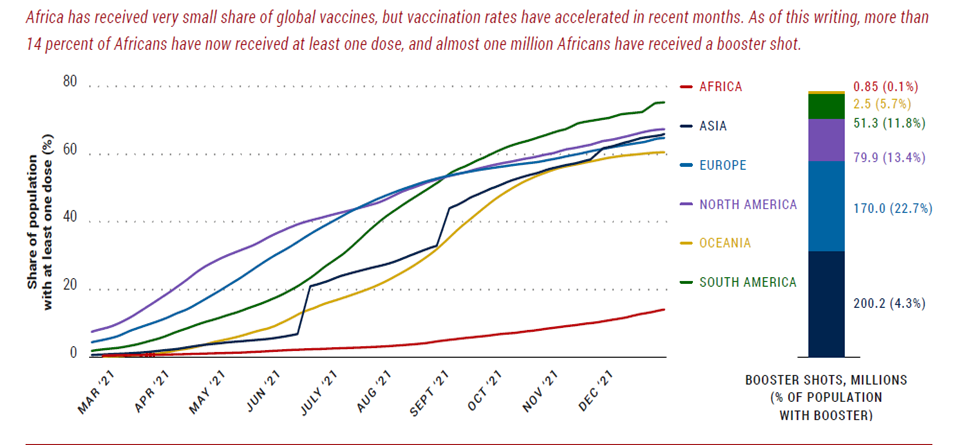
According to an article published by DW on May 11, 2022, about one per cent of vaccines used in Africa are currently manufactured on the continent. At the beginning of the pandemic, several African leaders said they want 60% of all vaccines produced locally by 2040. Africa’s major public health body, the Africa Centers for Disease Control and Prevention (Africa CDC), urged all buyers of COVID-19 vaccines for the continent to place orders with Aspen.
Read: Ghana approves herbal medication for Covid-19
International agencies and charitable foundations providing COVID-19 vaccines for Africa should order African-made vaccines, South African President Cyril Ramaphosa told a global COVID-19 summit co-hosted by the United States in early May.
“International agencies that have had a lot of money donated to (them) for purchasing and procuring vaccines for developing economy countries are not buying vaccines from African vaccine manufacturers. Even for those vaccines that are destined for African countries,” Ramaphosa said
In a related article published by Reuters on May 12, 2022, Dr. Abdou Salam Gueye, WHO Africa’s director of emergency preparedness and response, said the Aspen project had shown that good COVID-19 vaccines could be produced in South Africa. (nelsongreerpainting.com/)
Read: Does Africa have what it takes to produce human vaccine?
While the problem of establishing COVID vaccines manufacturing capacity appears to have been partly resolved, a bigger problem lies ahead – sustaining the facilities on the continent. Building the continent’s regulatory systems and clinical trial capabilities, and aligning them with the needs in the market, will also help sustain Africa’s vaccine manufacturing sector.
Devex in an article published on February 16, 2022, quoted Petro Terblanche, managing director at Afrigen Biologics, during an online panel discussion as part of Prescription for Progress 2022.
“There is no facility on the African continent that is licensed to produce clinical trial material. The facility here at the hub is designed to do exactly that,” she said, adding that Africa’s clinical trial capabilities need to be aligned with the 22 products the Partnership for African Vaccine Manufacturing has identified as a priority for localized production.
According to The Conversation published May 10, 2022, the history of vaccine manufacturing capacity in Africa dates back to 1881, when Egypt’s Vacsera Company was established. Before the COVID pandemic was declared, eight African countries had a record of vaccine manufacturing facilities. They were: Algeria, Egypt, Morocco, and Tunisia (North Africa); Nigeria and Senegal (West Africa); Ethiopia (East Africa); and South Africa. Between them, they had 14 facilities. Few were involved from end to end (discovery, fill and finish, pack and distribute) production process. Instead, the focus was largely on the late stage of the production process, fill and finish as well as pack and distribution.
It’s therefore not surprising that Africa’s vaccine manufacturing capacity has been limited.
Read: Private clinics in Africa to make billions from Covid-19 vaccine





